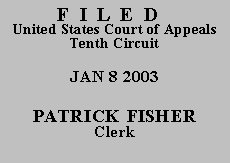

| UNITED STATES OF AMERICA, |
|
Defendant Armando Cano-Rodriguez, a non-citizen who had previously been deported after being convicted of an aggravated felony, pleaded guilty to illegally reentering the United States in violation of 8 U.S.C. § 1326(a). He was sentenced to 37 months' imprisonment and three years' supervised release. He now appeals the length of his sentence. Counsel for Defendant filed a brief pursuant to Anders v. California, 386 U.S. 738 (1967), and moves for leave to withdraw as counsel. For the reasons set forth below, we grant counsel's motion to withdraw and dismiss the appeal.
Defendant pleaded guilty to one count of illegally reentering the United States after having previously been deported subsequent to conviction of an aggravated felony. Dissatisfied with the Pre-Sentence Report's (PSR) recommended offense level of 21 and corresponding guideline imprisonment range of 46 to 57 months, he moved for a downward departure, requesting that he be sentenced in accordance with a range of 41 to 51 months. Still not satisfied with the contemplated term of imprisonment, Defendant moved to withdraw his guilty plea. Subsequently, he entered into a negotiated plea agreement under Rule 11(e)(1)(C), under which the parties agreed to an adjusted offense level of 19 and stipulated that Defendant be sentenced at the lowest end of the guideline imprisonment range, i.e., 37 to 46 months. Defendant's revised PSR reflected this agreement and recommended a sentencing range of 37 to 46 months.
At the sentencing hearing, Defendant's counsel stated that he had received the revised PSR, reviewed it with Defendant, and had no objections. Defendant then addressed the court. He apologized for his criminal activity, and asked the court to "lower a little bit the time." The district court accepted Defendant's plea agreement and sentenced him to 37 months in prison, the bottom of the agreed-upon sentencing range.
Defendant now appeals, contending that under the circumstances of his case, 37 months is too harsh a sentence. Defendant's counsel has filed an Anders brief, seeking leave to withdraw as counsel. According to the procedure set forth in Anders, if counsel finds a case to be "wholly frivolous" after a "conscientious examination," he may advise the court and request permission to withdraw. Anders, 386 U.S. at 744. Counsel must also submit to both the court and his client a brief referring to anything in the record arguably supportive of the appeal. Id. The client may then file additional materials with the court and raise any point he chooses. Id. The court thereafter undertakes a complete examination of all proceedings and determines whether the appeal is in fact frivolous. Id. If the court so finds, it may grant counsel permission to withdraw and dismiss the appeal. Id.
After careful review of the entire proceedings, we agree with counsel that, in light of Defendant's plea agreement, his appeal is frivolous. "A defendant receiving a sentence under a Rule 11(e)(1)(C) plea agreement may appeal only when his sentence 'was imposed in violation of law [or] was imposed as a result of an incorrect application of the sentencing guidelines.'" United States v. Sanchez, 146 F.3d 796, 797 (10th Cir. 1998) (quoting 18 U.S.C. §§ 3742(a)(1) & (2)); see 18 U.S.C. § 3742(c)(1). Absent the presence of either condition, we lack jurisdiction to review a defendant's challenge to the district court's sentencing determination. See Sanchez, 146 F.3d at 797.
Here, Defendant has not argued that his sentence was "imposed in violation of the law" or "as a result of an incorrect application of the sentencing guidelines," 18 U.S.C. §§ 3742(a)(1) & (2), or that his guilty plea was not knowing and voluntary. And we find nothing in the record that would so indicate. Indeed, Defendant was sentenced at the bottom of the stipulated guideline range. Hence, we lack jurisdiction over his appeal.
Accordingly, we GRANT counsel's request to withdraw and we DISMISS the appeal.
Entered for the Court
Harris L Hartz
Circuit Judge